
An ancient structure was discovered on the eastern slope of the valley The City of David inside Jerusalem Walls National Park is believed to have been used for ritual practices during the First Temple Period, according to a new study.
The temple had eight rooms containing such items as an altar, a standing stone, an oil press, and a wine press.
Excavation director Eli Shukroun said in an article published in the scientific journal Antiquat that the exposed structure may have been used by the residents of Judah in worship or religious practices.
The study indicates that the structure, which is in generally exceptional shape, dates back to the First Temple period and was uncovered during excavations carried out by the Israel Antiquities Authority in the City of David.
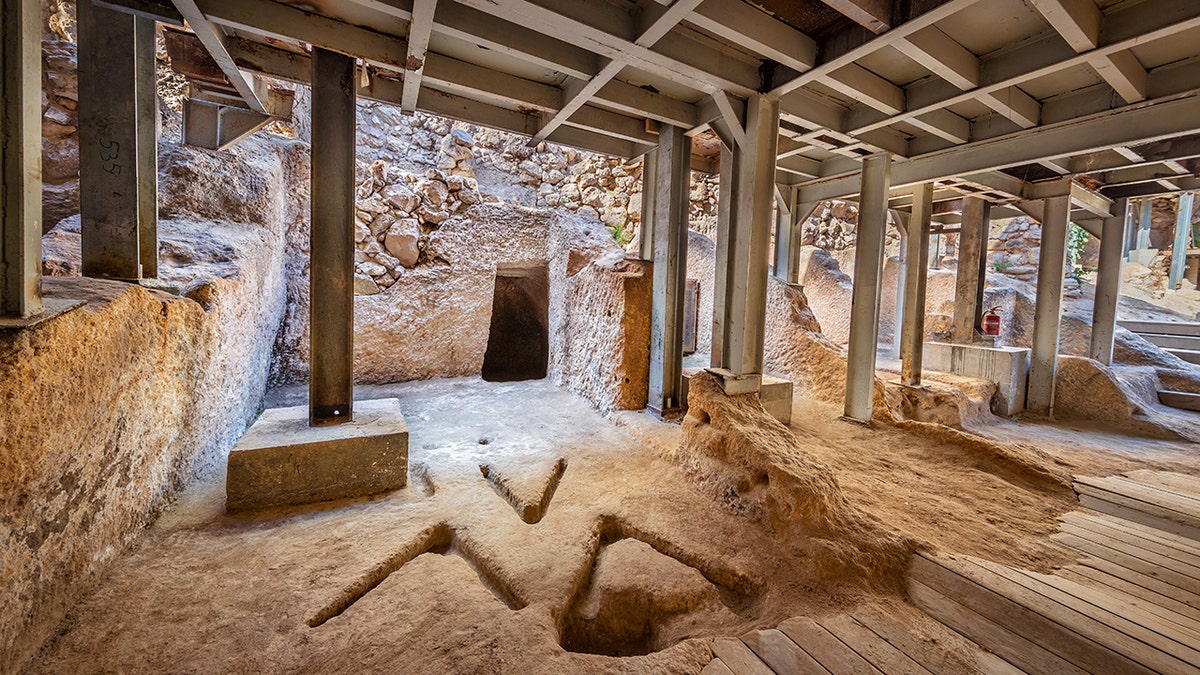
The ritual temple discovered in the City of David is the only one of its kind from this period found in Jerusalem. (Image source: Kobe Harati, City of David)
“When we started excavating the City of David in 2010, we discovered that the site had been closed by filling from the eighth century BC (before the Common Era), indicating that it was no longer usable during that period,” Shukroun said. “The standing stone we discovered remains standing in its original place, and the other rooms in the building are also well preserved.”
Shukron's article suggested that the building, consisting of eight rooms hewn into the rock, was used for ritual purposes, not far from the temple on the Temple Mount, approximately a few hundred meters away.
It is also the only known building of its kind from that period in Jerusalem and one of the few existing in Israel.
A hidden staircase in the church leads archaeologists to the discovery of a 400-year-old vault
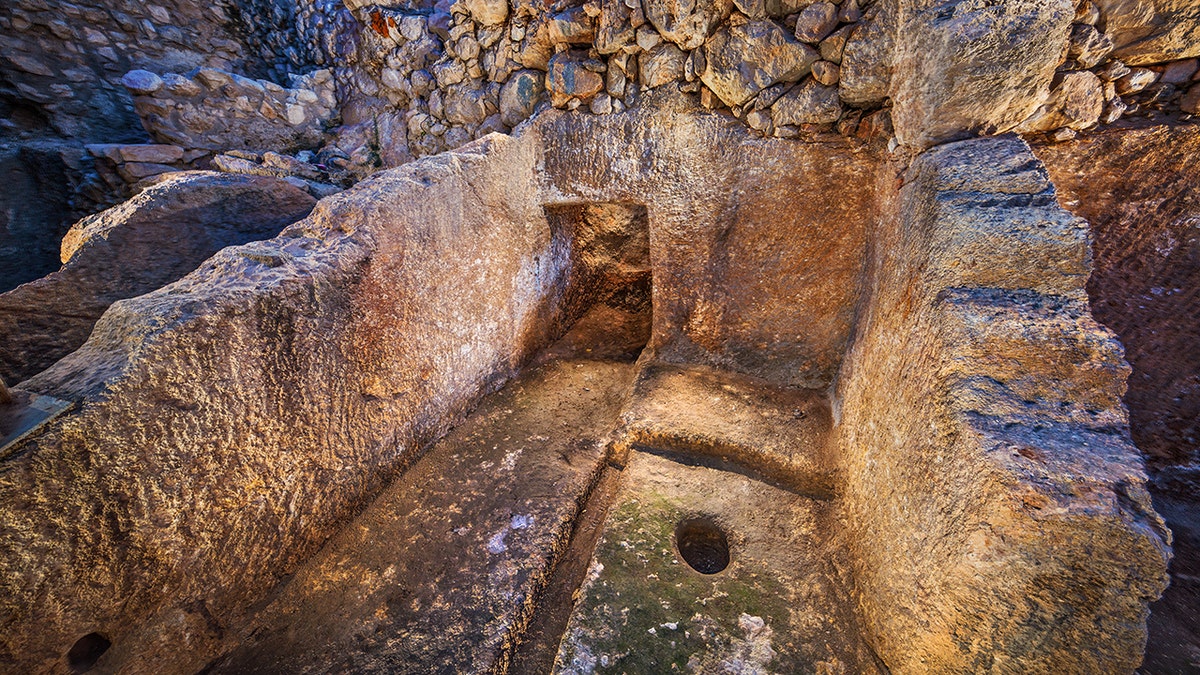
The sculptural composition is identified as an altar with a channel for draining liquid. (Image source: Kobe Harati, City of David)
The building itself is approximately 220 square metres, and contains eight rooms, each used for different purposes.
One of the rooms contains an oil press for producing oil. Another contained a wine press for making wine.
Other rooms contain objects such as a carved installation with a drainage channel, which researchers have identified as an altar; Large standing stone. The floor has V-shaped carving marks, although researchers are still confused about the purposes of the carvings.
Archaeologists discover one of the oldest Christian churches in the world
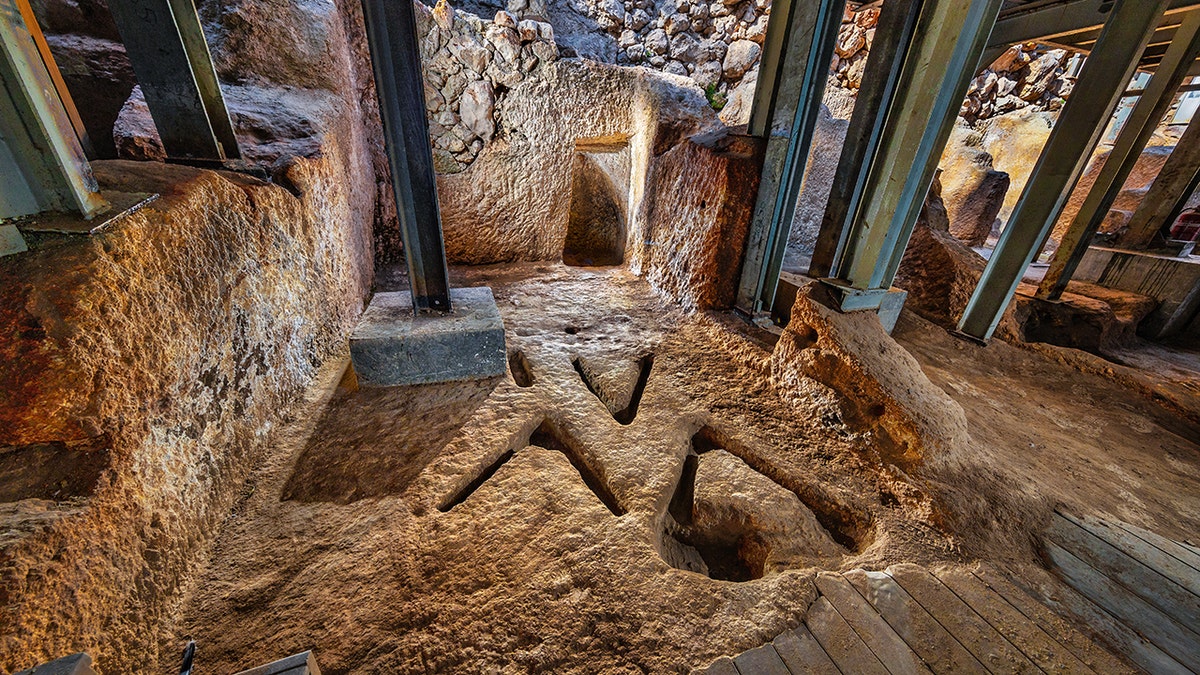
Mysterious carvings were discovered on the floor of the temple. (Image source: Kobe Harati, City of David)
Shukrun hypothesized that the carvings may have been used as a base for a tripod used during ritual activities.
On the edge of the building is a small cave containing a cache of items dating back to the 8th century BC. Items in the cache included cooking utensils, jars containing fragments of ancient Hebrew inscriptions, loom weights, scarabs, sealed seals, and grinding stones for crushing grain.
Shukron and his team believe the temple was in use until the 8th century B.C., when the kings of Judah ruled.
Artifact bearing a strange inscription found at the holy site in Jerusalem: 'An unusual site'
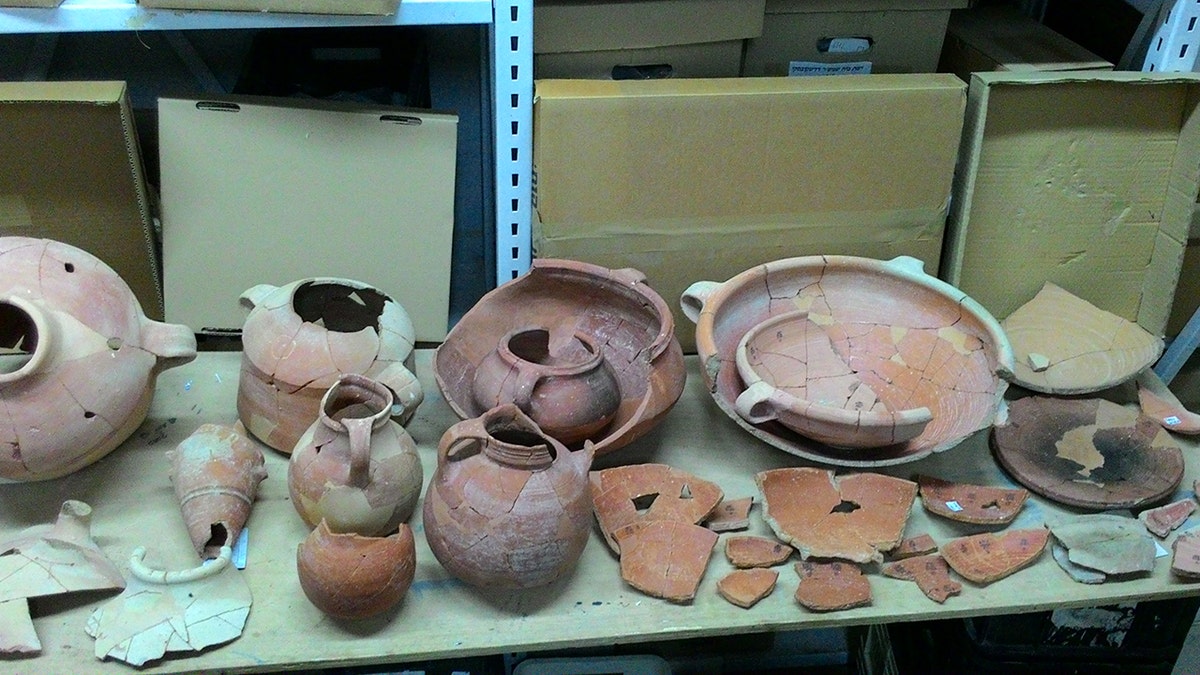
A collection of artifacts discovered in the cave adjacent to the structure. “The cave served as a repository for artifacts.” (Image source: Elie Shukroun)
“The temple stopped operating during the eighth century B.C., perhaps as part of King Hezekiah’s religious reform,” Shukron said.
the The Bible says Hezekiah He wanted to centralize worship in the temple in Jerusalem, thereby eliminating existing ritual sites throughout the kingdom.
It also describes that during the First Temple period, other sites used for rituals outside the temple were used, and Kings Hezekiah and Josiah implemented repairs to remove the sites.
Archaeologists puzzled by strange 7,000-year-old alien-like statue: 'raises questions'
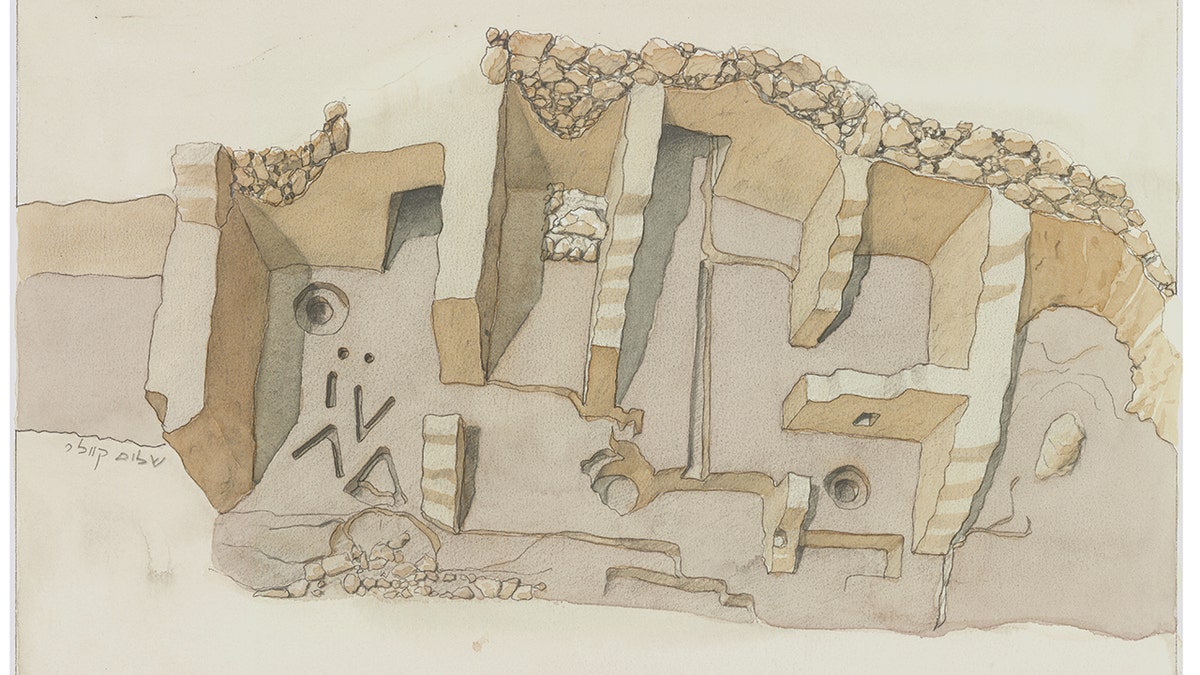
Illustration of the carved chambers discovered in the City of David. (Illustration: Shalom Kveller, City of David)
“Nearly 3,000 years later, Jerusalem’s biblical heritage still exists It was discovered in the City of DavidAnd over time, its importance and meaning continues to grow, with significance to billions, not just millions, around the world,” Zeev Orenstein, director of internal affairs for the City of David, told Fox News. “Unlike most ancient sites, Jerusalem's biblical heritage remains timeless And timely – and not limited to museums and history books – but a necessary element in understanding the world today – past, present and future.”
The northern part of the temple was discovered in 1909 by British explorer Montagu Parker, who searched Jerusalem for relics. Ark of the Covenant And the treasures of the temple.
In 2010, Shukroun began excavations at the site, which continued over several seasons of excavation.
CLICK HERE TO GET THE FOX NEWS APP
“This discovery in the City of David once again underscores the Jewish people’s continuing relationship with Jerusalem for more than 3,000 years — not just as a matter of faith, but as a matter of fact — from Biblical times to the modern era,” Orenstein said. .








